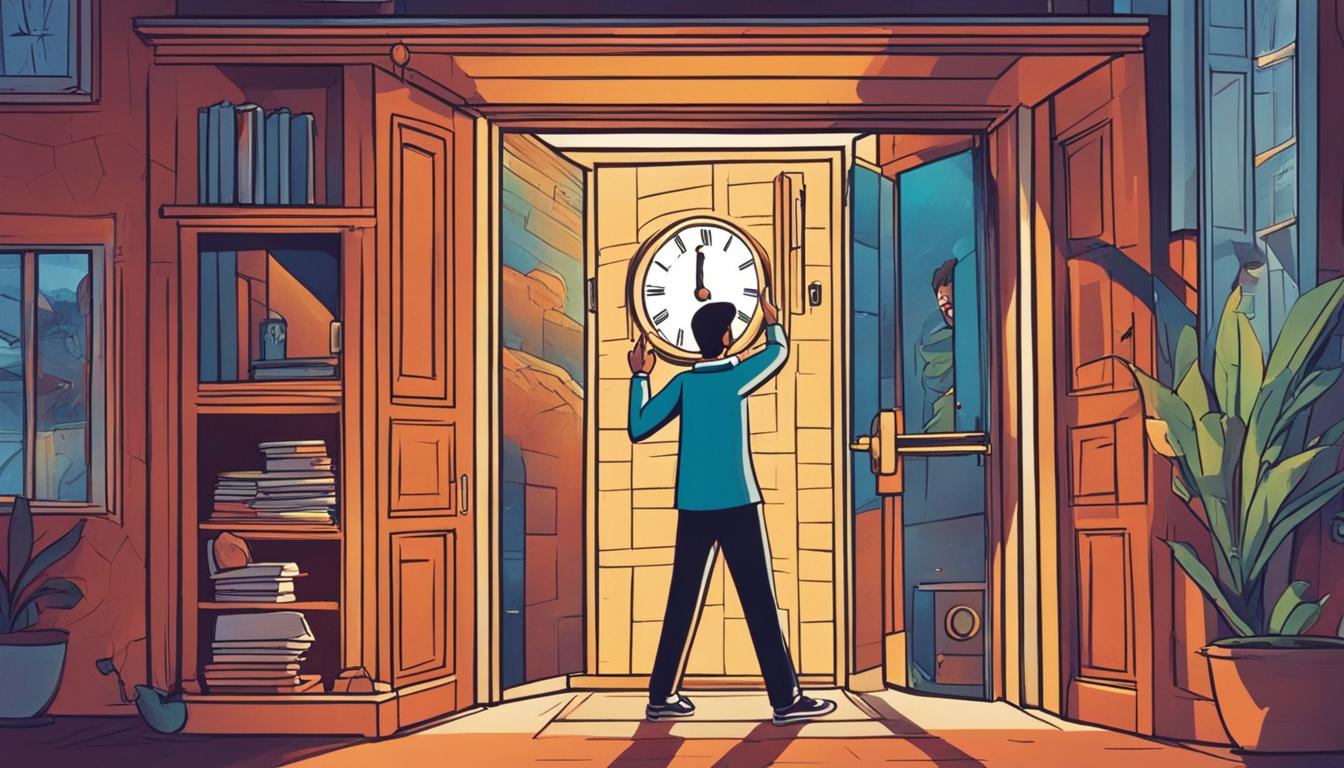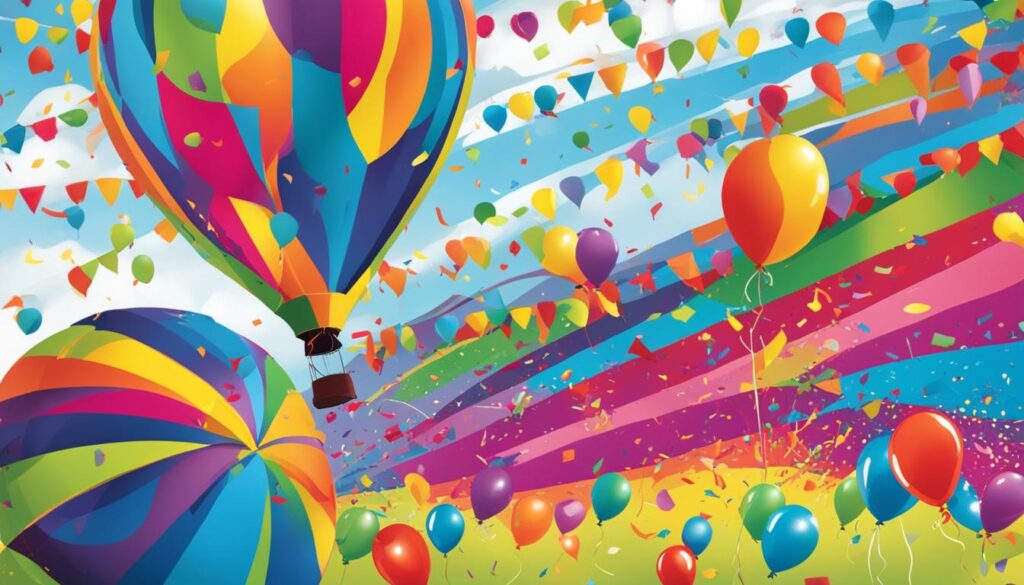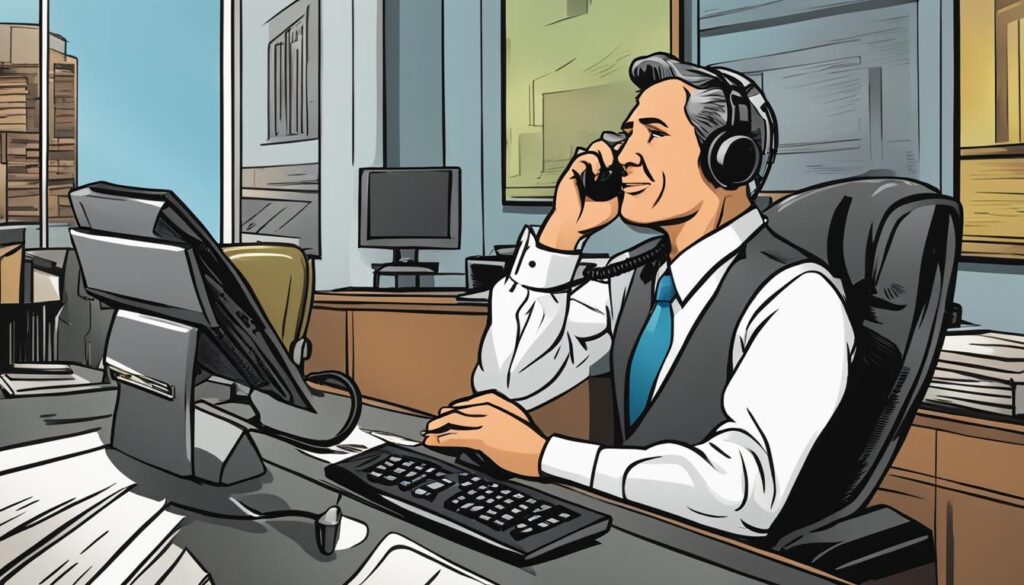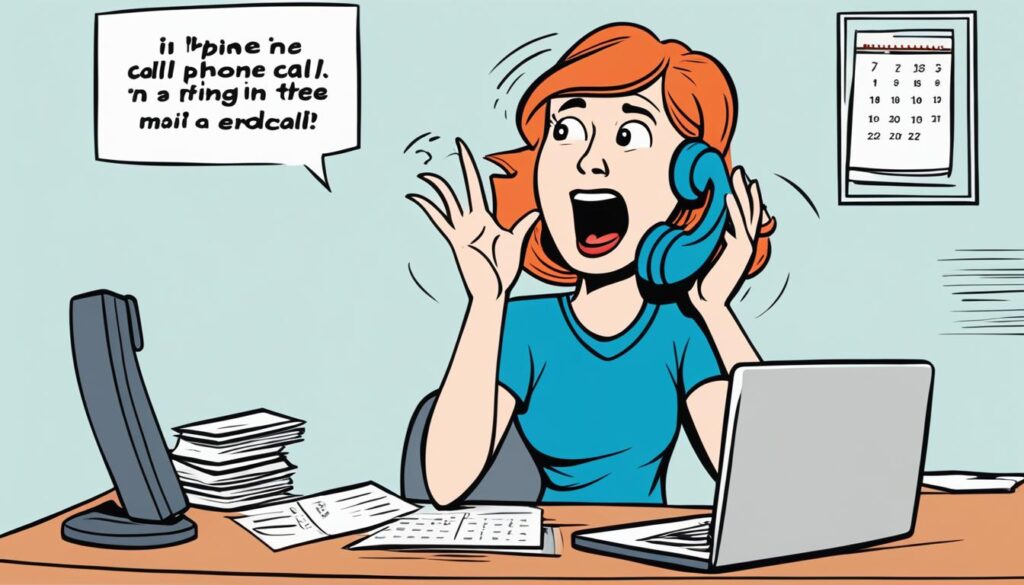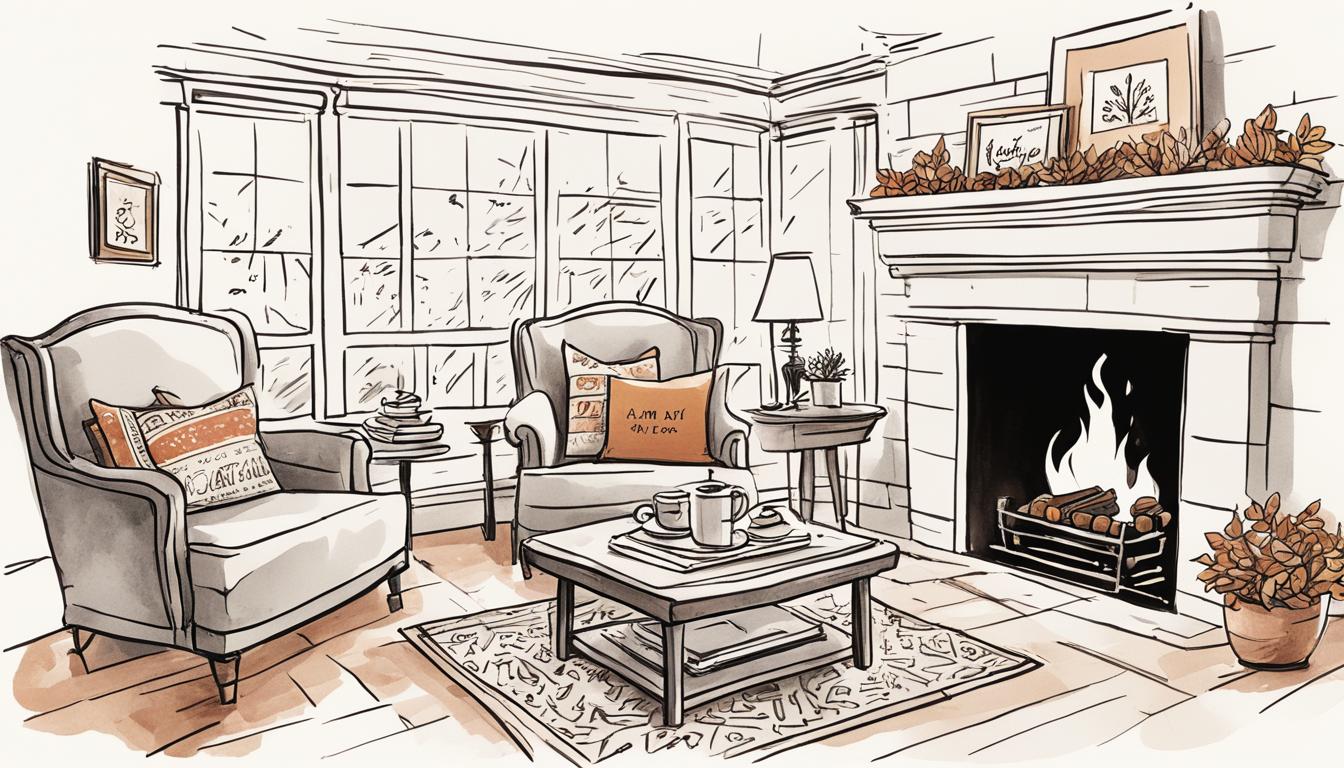In this article, we will explore various alternatives to the phrase “Looking forward to your call.” These alternatives express different levels of excitement and anticipation for receiving a phone call. By using these unique expressions, you can add a touch of poetry and eager anticipation to your communication.
Are you eagerly awaiting a call, counting down the minutes until your phone finally rings? The anticipation of a call can fill us with excitement and joy, stirring a sense of longing and eagerness. But how do we express this anticipation in a way that goes beyond the standard phrase “Looking forward to your call”?
Join me on this poetic journey as we delve into a world of words and discover other ways to express our excitement when anticipating a call. From formal alternatives suited for professional settings to casual alternatives perfect for friends and family, we’ll explore a range of expressions that will make your communications more engaging and memorable.
So whether you’re anxiously hoping for a call, keenly expecting that important conversation, or simply counting down the minutes until you hear that familiar voice, let’s dive into the world of anticipation and discover the many ways to express our longing for that incoming call.
Formal Alternatives to “Looking Forward to Your Call”
In the realm of professional communication, it is essential to express anticipation and excitement with refinement and politeness. Here are formal alternatives to the commonly used phrase “Looking forward to your call” that can add elegance and charm to your conversations.
I’m keen to have a conversation with you.
In this elegant expression, the word “keen” embodies a deep enthusiasm and desire to engage in a productive and meaningful dialogue. By using this phrase, you convey both excitement and a professional demeanor, making it ideal for clients, colleagues, or potential employers.
I eagerly await our chat.
With the use of the word “eagerly,” this alternative amplifies the anticipation and delight in anticipation of the forthcoming call. It strikes a perfect balance between formality and a warmer, friendlier tone. Employing this phrase showcases your anticipation while maintaining a respectful and professional demeanor, which is well-suited for new business connections or potential collaborators.
When reaching out to clients or new employers, these formal alternatives to “Looking forward to your call” allow you to convey your excitement and eagerness in a distinguished and refined manner. Now, let’s explore informal alternatives for a more relaxed tone of anticipation.
Informal Alternatives to “Looking Forward to Your Call”
When it comes to expressing excitement for a call in a casual and friendly way, there are several informal alternatives to choose from. These alternatives create a relaxed and conversational vibe, making them perfect for communication with customers or within a casual company setting.
One alternative is to say “I can’t wait for you to call.” This simple phrase beautifully encapsulates the eagerness and anticipation for a phone call. It conveys a sense of excitement and anticipation, showing the recipient that you are eagerly awaiting their call.
Another option is to express your excitement by saying “I’m excitedly awaiting your call.” This alternative adds a touch of enthusiasm and offers a more personal and engaging tone. It conveys your eagerness for their call, creating a warm and friendly atmosphere in the conversation.
So, instead of simply saying “Looking forward to your call,” embrace these informal alternatives to add a dose of excitement and anticipation to your communication.
Is It Correct to Say “Looking Forward to Your Call”?
Yes, it is correct to say “Looking forward to your call.” This poetic phrase is commonly used in formal emails to express genuine excitement and anticipation for a scheduled phone call. The subtle use of the preposition “to” conveys a sense of eagerly awaiting the caller’s voice, further enhancing the poetic tone of the expression.
It is essential to use the correct phraseology when employing this expression, as variations such as “Looking forward for your call” can disrupt the poignancy and fluency of the overall message. The phrase “Looking forward to” expresses a longing for a specific event or action, thus effectively capturing the desired sentiment.
Furthermore, it is worth noting that variations such as “I am looking forward to your call” or “We are looking forward to your call” can be used to infuse a more professional tone into the communication. These slight adaptations uphold the originality and authenticity of the expression while introducing a sense of solidarity or unity depending on the speaker’s subjectivity.
In summary, the phrase “Looking forward to your call” is not only grammatically correct, but it also adds a touch of elegance, anticipation, and warmth to formal communication. Its extensive usage in professional settings further solidifies its acceptability and effectiveness in expressing genuine excitement for an upcoming phone conversation.
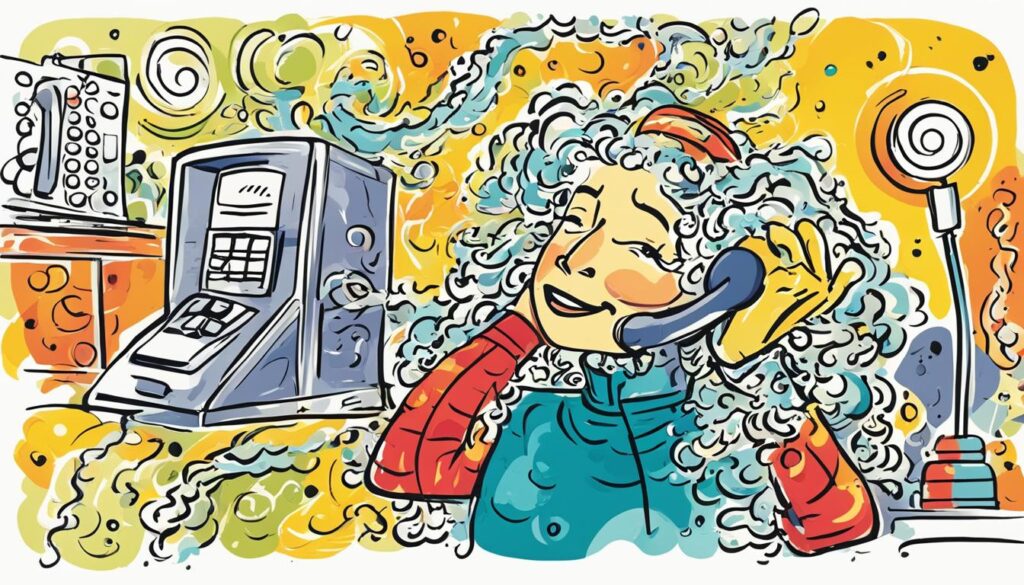
Alternatives to “I’m Looking Forward to Hearing from You” in Business Communication
When it comes to business communication, it’s crucial to steer clear of redundant and overused phrases. Rather than relying on the conventional “I’m looking forward to hearing from you,” seize the opportunity to impress with unique alternatives that demonstrate your sense of urgency and professionalism.
1. “I’m eagerly awaiting your response”
Embrace the poetic language of anticipation by expressing your eagerness for a prompt reply. This alternative conveys your excitement and demonstrates your dedication to the conversation.
2. “Your prompt reply would be appreciated”
In a fast-paced business environment, efficiency is key. By politely emphasizing the importance of a timely response, you communicate your respect for the recipient’s time and demonstrate your commitment to effective communication.
“The value of a prompt response cannot be overstated, and I am confident that your timely reply will further strengthen our collaboration.”
By utilizing these alternatives, you can enhance your business communication and avoid the monotony of repetitive phrases. Let your words captivate and impress your colleagues, coworkers, and employees.
| Phrase | Meaning |
|---|---|
| “I’m eagerly awaiting your response” | Conveys excitement and eagerness for a reply |
| “Your prompt reply would be appreciated” | Politely emphasizes the importance of a timely response |
Choose the alternative that best suits your communication style and fosters meaningful exchanges. Step away from the ordinary and enrich your business correspondence with expressions that inspire engagement and leave a lasting impression.
Try Out These Casual Alternatives:
- “I can’t wait to hear from you”
- “I’m excited to receive your response”
These casual alternatives are perfect for personalized conversations with friends or relatives, adding a warm and informal touch to your communication.
Casual Alternatives to “I’m Looking Forward to Hearing from You”
When I reach out to my friends or close relatives, I like to use casual alternatives to the phrase “I’m looking forward to hearing from you.” These expressions not only convey my excitement but also create a friendly, informal tone that fosters warm and relaxed conversations.
“I can’t wait to hear from you” is an expression that reflects my eagerness to receive a response. It conveys a sense of anticipation and shows how much I value our communication.
Another alternative that I often use is “I’m excited to hear from you.” This simple phrase expresses my genuine enthusiasm and lets the recipient know how much I am looking forward to their message.
By using these casual alternatives, I can establish a more intimate connection with my friends and relatives, creating a communication style that is both personal and enjoyable.
Table: Casual Alternatives to “I’m Looking Forward to Hearing from You”
| Alternative Expressions | Meaning |
|---|---|
| I can’t wait to hear from you | Expresses eagerness and anticipation for a response |
| I’m excited to hear from you | Conveys genuine enthusiasm and anticipation for a message |
When to Use “I’m Looking Forward to Hearing from You” or Its Alternatives
The choice between “I’m looking forward to hearing from you” and its alternatives depends on the context and the relationship with the recipient. Business-friendly alternatives are more suitable for professional communication, while casual alternatives work well for personal conversations. Consider the level of formality and the desired tone when deciding which expression to use.
Professional Communication:
In professional settings, it is essential to maintain a formal and respectful tone in your communication. When reaching out to clients or potential employers, consider using the following alternatives:
“I eagerly anticipate your response.”
“I am excitedly awaiting your call.”
“Your prompt reply is highly appreciated.”
These expressions convey a sense of professionalism and set the tone for productive discussions and collaborations in the business world.
Personal Conversations:
When communicating with friends, family, or colleagues in a more casual setting, you can opt for alternatives that reflect a friendly and informal tone. Some examples include:
“I can’t wait to hear from you.”
“I’m excited to chat with you.”
“Looking forward to catching up soon!”
These alternatives create a warm and relaxed atmosphere and are perfect for fostering personal relationships and casual conversations.
Remember, the choice between “I’m looking forward to hearing from you” and its alternatives ultimately depends on the nature of the communication and your relationship with the recipient. Tailor your expression of anticipation to the context to ensure effective and engaging communication.
Related Posts: Other Expressions of Anticipation in Communication
In addition to exploring alternatives to “Looking forward to your call,” there are various expressions of anticipation that can be used in different communication contexts. These expressions allow you to convey your excitement and eagerness in a poetic and engaging manner. Below are some related posts that provide additional resources for expanding your vocabulary of anticipation:
1. Looking Forward to Working with You
If you are excited about collaborating with someone or starting a new project, there are alternative expressions that can be used to express your anticipation. These include:
- “Eagerly anticipating our partnership”
- “Enthusiastically counting down to our collaboration”
- “Keenly awaiting the opportunity to work together”
2. Looking Forward to Meeting You
When anticipating a meeting or encounter with someone, you can use alternative expressions to express your excitement. Consider:
- “Anxiously awaiting our rendezvous”
- “Anticipating our upcoming introduction with enthusiasm”
- “Excited to finally come face-to-face”
3. Looking Forward to Being Part of the Team
If you are joining a new team or organization, you can use alternative expressions to convey your enthusiasm for becoming a part of the group. Some options include:
- “Eagerly anticipating my integration into the team”
- “Keenly looking forward to joining forces with such talented individuals”
- “Excitedly awaiting my induction into the team”
4. Looking Forward to Speaking with You
When anticipating a conversation or call, there are alternative expressions that can convey your excitement. Consider:
- “Anticipating our dialogue with great anticipation”
- “Eagerly counting down the moments until our conversation”
- “Excitedly awaiting our forthcoming discussion”
By using these alternative expressions of anticipation, you can add a touch of poetic flair to your communication and create a memorable impression. Keep in mind the context and relationship with the recipient to choose the most suitable expression for your situation.
Conclusion: Embrace the Poetry of Anticipation in Your Communication
By embracing the various alternatives to “Looking forward to your call,” you can embrace the poetry of anticipation and infuse your communication with excitement. Whether you’re in a formal or informal setting, it’s important to choose expressions that convey your level of anticipation appropriately. These unique alternatives not only add a touch of elegance but also make your communication more engaging and memorable.
Let the anticipation dance through your words, painting a vivid picture of your eagerness for the call. Explore the vast landscapes of expressions that convey excitement and eagerly await the melody of conversation. Give your communication that extra spark that will leave a lasting impression on the other end of the line.
As you seek to leave a lasting impression, remember to choose the alternative expressions that perfectly capture the depth of your enthusiasm. Tailor your words to the tone and relationship you wish to establish. Whether it be the formality of a professional setting or the familiarity of a personal conversation, there are phrases that will resonate with your intended audience.
“Anticipation, the eager embrace of what is yet to come, spills like ink on the parchment of communication, infusing our words with the poetry of expectation.”
With each conversation, the canvas awaits your creative brushstrokes of anticipation. Paint a masterpiece of excitement, leaving a trace of poetry in every word choice. Your communication will become a symphony of eager expectations, drawing others into the dance of anticipation.
Embrace the poetry of anticipation, and let your communication transcend the ordinary. Open the door to a world where the magic of words kindles anticipation in the hearts of those who listen.
About the Author
Gina, the author of this article, is a literary artist who holds a Bachelor of Arts in English. With a profound passion for the craft of writing, she skillfully weaves words together to create captivating pieces. Gina’s artistic affinity extends beyond her profession, as she spends her free time engrossed in the realms of literature. Her reading escapades span across various genres, serving as a constant source of inspiration.
When Gina is not immersed in the written word, she harnesses the power of her own pen to craft compelling narratives. Exploring different writing styles and genres, she delves into the depths of her imagination, continuously pushing the boundaries of her creativity.
When she’s not traversing the realms of fiction, Gina enjoys spending quality time with her loyal furry companion, Mango. Their adventures together serve as a reminder of the importance of companionship and the joy that can be found in the simplest of moments.
Gina’s ultimate goal is to assist others in perfecting their own writing and communication skills. Through her work, she aims to ignite a flame of creativity within each of her readers, empowering them to express themselves eloquently.
Embark on this literary journey with Gina and uncover the beauty of storytelling, language, and the art of effective communication.
References
The information and alternative expressions in this article were derived from multiple sources, including credible online platforms. These sources offer valuable insights and suggestions for effectively expressing anticipation in communication.
Some of the references used in this article include:
- The Oxford Dictionary
- The Cambridge Dictionary
- Grammarly
- Merriam-Webster
- Thesaurus.com
These resources provide a comprehensive exploration of language usage and offer reliable alternatives to traditional expressions. By consulting these references, I was able to compile a diverse range of phrases for expressing excitement and anticipation. It is important to reference these sources to give credit to the linguistic experts who have contributed to this body of knowledge.
When using alternative expressions, it is always advisable to double-check their appropriateness and context. Each source mentioned above provides detailed explanations and clear examples to help you use these phrases effectively. By leveraging these references, you can ensure that your communication sounds polished, engaging, and tailored to your specific needs.
Source Links
- https://www.linkedin.com/pulse/26-clever-alternatives-say-i-look-forward-hearing-from-amen-mpofu
- https://wordselector.com/other-ways-to-say-looking-forward-to-your-call/
- https://languagetool.org/insights/post/word-choice-looking-forward/

